Early April is witness to a whole series of customs and traditions surrounding Easter in Poland, which range from pious to playful, to downright pagan. Gdańsk and the surrounding Tri-city area is no exception, and, along with other cities in Poland, its own take on Polish Easter traditions comes into effect!
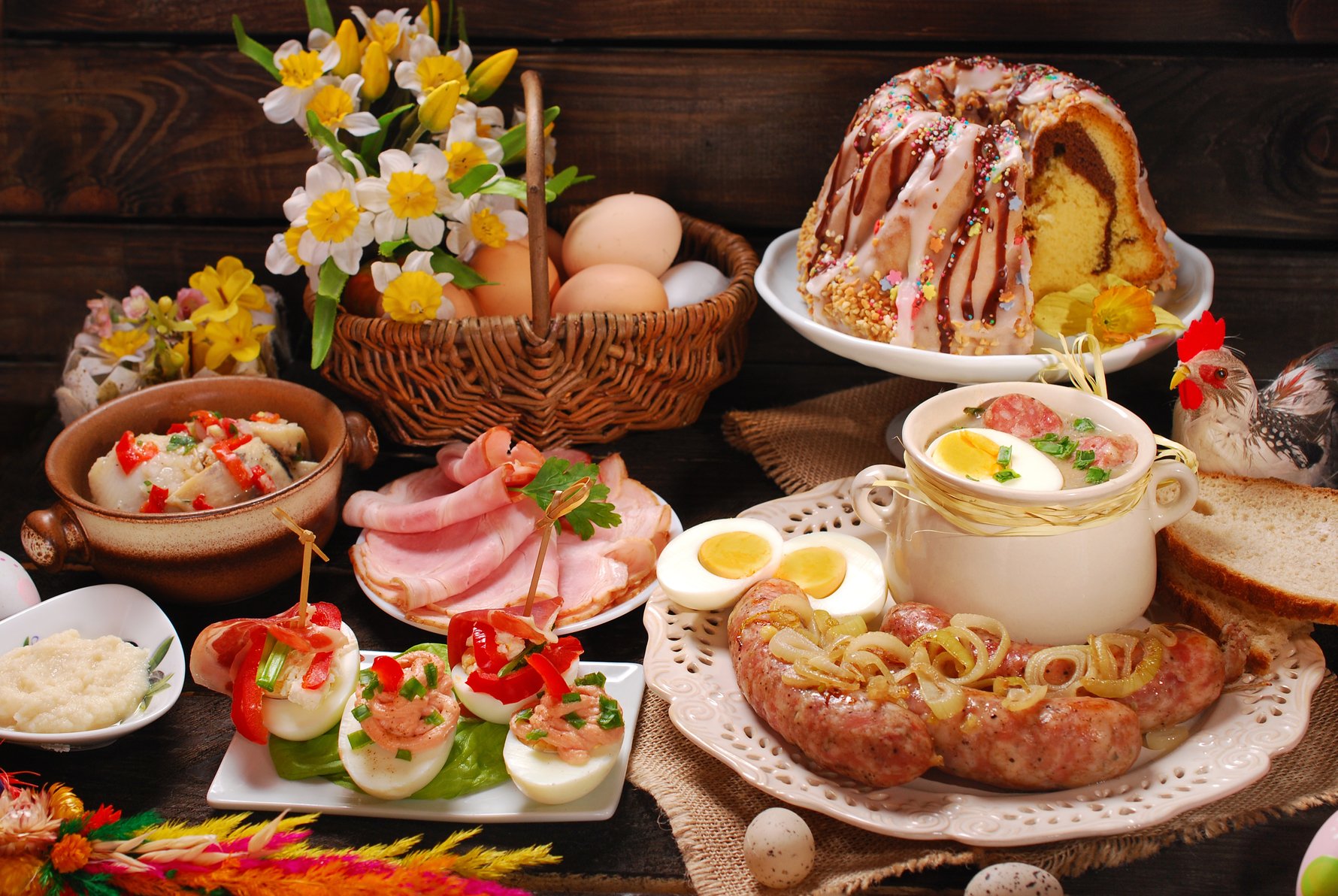
Leading up to the season you will see decorative handmade 'palms' for sale all over tricity. Representing the branches laid on the ground before Jesus during his entrance into Jerusalem, these elaborately woven traditional decorations are made from a variety of dried flowers and plants. On Palm Sunday (Niedziela Palmowa, April 13, 2025 - the official beginning of Poland’s Easter festivities) Catholics take their palms to church on Palm Sunday and have them blessed for the season before they are used to decorate the home.
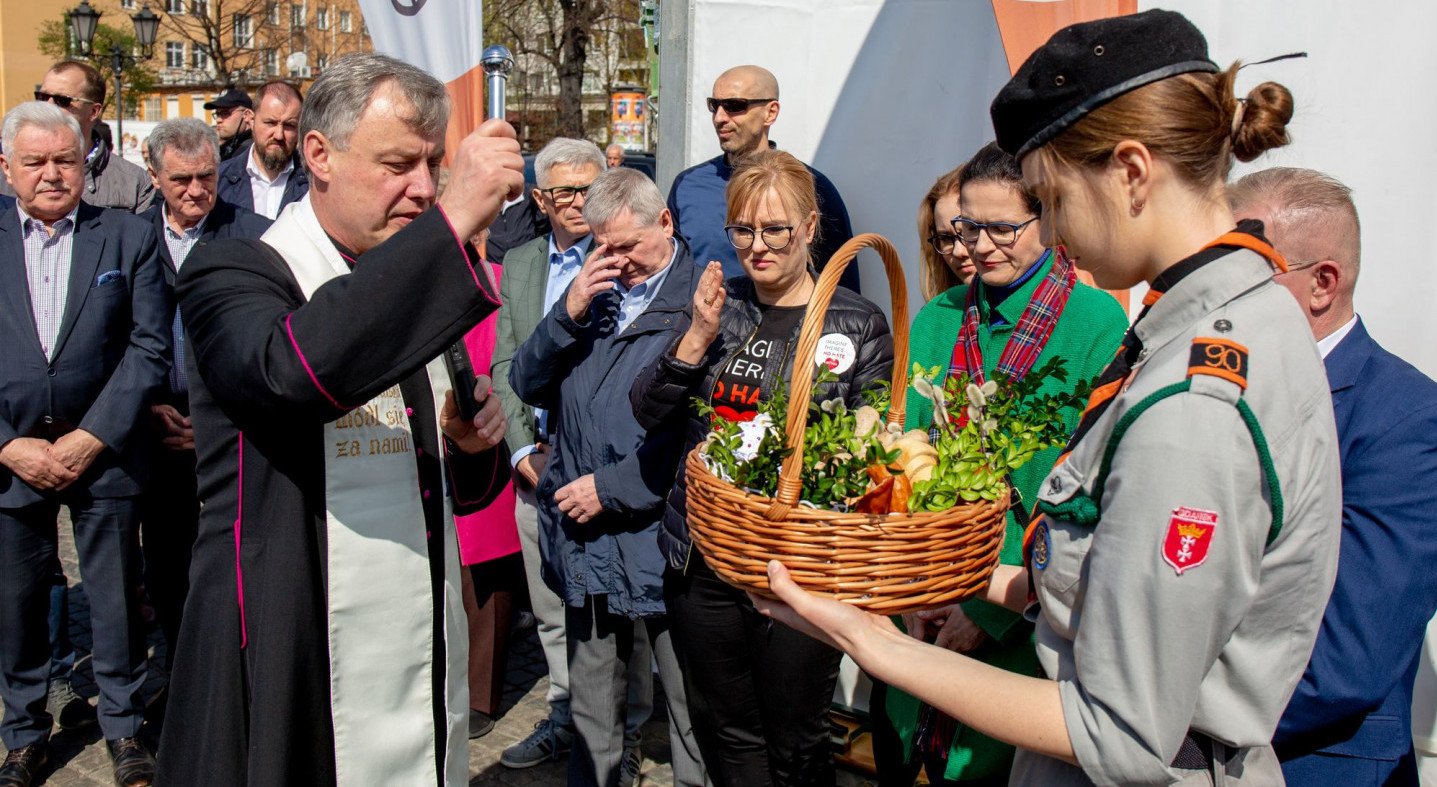
Abiding Catholics attend Church on Thursday to remember the Last Supper, and again on Good Friday to attend stations of the cross – a series of prayers following Jesus Christ’s route to his crucifixion. As a deeply Catholic country, Poland takes its Easter (Wielkanoc) celebrations very seriously and opening-hours are always affected (see at bottom of article).
POLISH DECORATED EASTER EGGS
Speaking of 'decorations', we cannot forget the all-important egg! In Poland they're known as pisanki and, while it's common enough for people in western Europe and abroad to go crazy with coloured-markers and glitter, Poles still favour the old-school method of dyeing. Natural substances such as onion peels or beetroot juice are used, and later on a knife is used to scrape a pattern. Alternatively, wax can be used to make some interesting textures! Due to restrictions and a general lack of public events, this activity is a great idea to do with young children and bring a little bit of Polish Easter spirit into the home!
EASTER SATURDAY IN GDAŃSK
On a regular Easter Saturday (April 20, 2025), Polish families bring baskets of food to church to have these blessed as well. These baskets traditionally contain a piece of sausage, bread, egg, some salt, some horseradish and a symbolic ram made from dough. And don't forget the pisanki that we prepared earlier! Each of these components of the basket has a symbolic meaning: the eggs and meat symbolise new life, fertility and health; the salt protects against bad spirits and helps you follow the right path; the bread symbolises the body of Christ and future prosperity in terms of always having food to feed yourself; the horseradish represents strength and physical health; and the cake represents skills and talents needed for the coming year.
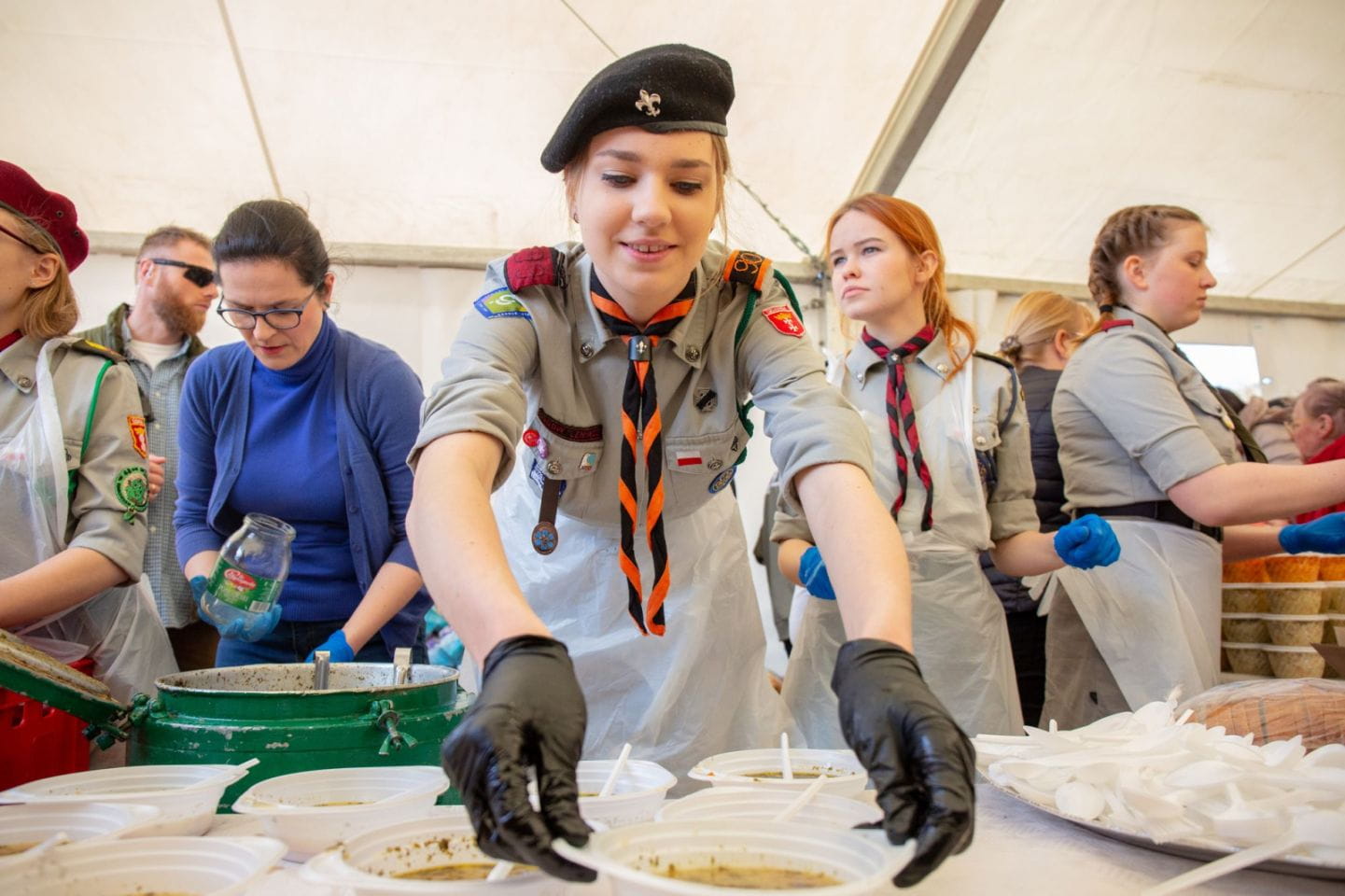
on Targ Węglowy. Photo Credit: Piotr Hukało / Trojmiasto.pl
In Gdańsk, these baskets are also donated to church-led charity organisations that are, in turn, passed on to the needy. Scouts will also man outdoor kitchens on Targ Węglowy to dish out breakfast to the afore-mentioned. Church communities will also host meals for the poor inside church property.
THE MYSTERY OF THE PASSION
In times of normality, Gdańsk partakes in Nocnie Misterium Męki Pańskiej (ENG: The Night of the Mystery of the Passion) inspired by the Andalusian tradition of the Semana Santa procession, dating back to the fourteenth century. This march of penitence has taken place in Gdańsk at various times since the medieval period of the city. On Easter Saturday, it usually begins at St. Gertrude's bastion in the south of the city at around 21:30 and the approx 2.5hrs route aims to be at St. Mary's Basilica in time for the midnight mass!
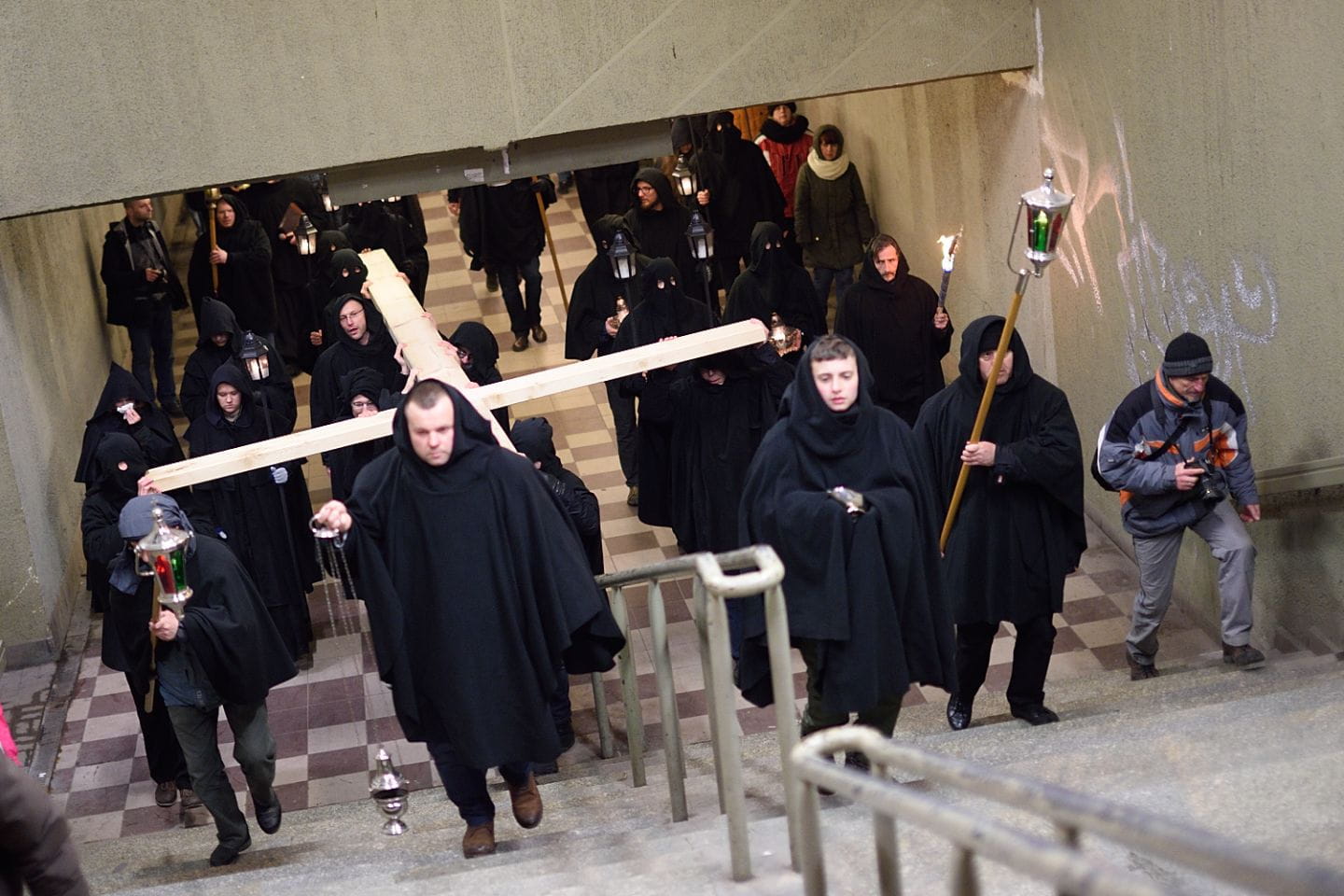
Before it kicks off, songs and prayers of traditional Lent, passion, and lamentation are held, followed by a moment's silence, which is broken by the trumpet, the sounds of drums and knockers. Hooded marchers, carrying a six-meter cross, are accompanied by the natural light of torches, candles and lanterns.
EASTER SUNDAY IN GDAŃSK
On Easter Sunday (April 20, 2025) - the most important day of the entire Wielki Tydzień (Great Week) - families gather together in the morning to feast from their Easter baskets, plus żurek (Polish rye soup), mazurek (a decoratively iced dessert pie) and other traditional foods. With the dough ram on the table to symbolise Christ’s resurrection, each person places a small piece of the blessed food on their plate before exchanging wishes with other members of the family.
ŚMIGUS DYNGUS - WATERBOMBS FOR CHRIST
Although bunny-free, things do finally take on a more lighthearted air on Easter Monday (April 21, 2025). Known as Śmigus Dyngus, the day is dominated by public water fights and everyone is given carte blanche to drench anyone they see with water. As a foreigner, you are not exempt from this practice, so move fast if you see someone armed with a water pistol or bucket and a grin. Although it’s never pleasant to have a jug of water thrown over your head, this is an improvement over the past when young people were beaten with sticks from Palm Sunday trees; apparently, either one will bring you luck. Happy Easter!
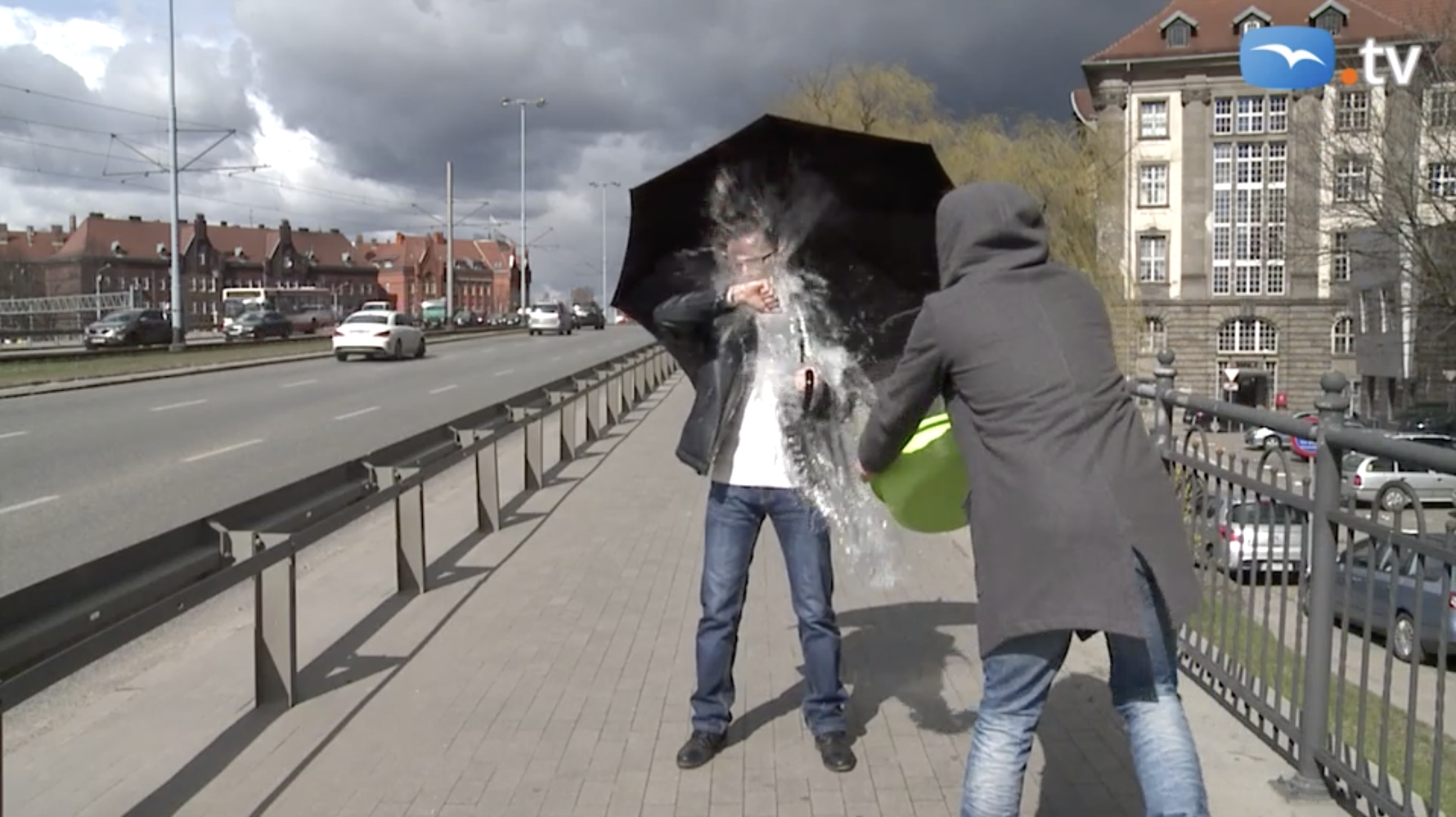
OPENING HOURS IN GDAŃSK DURING EASTER
You can expect bars and restaurants to be largely empty of locals or completely closed from Good Friday (Wielki Piątek) to Easter Sunday (April 18 - April 20, 2025). Shops are usually closed on Easter Sunday and Monday (April 20 - April 21, 2025).


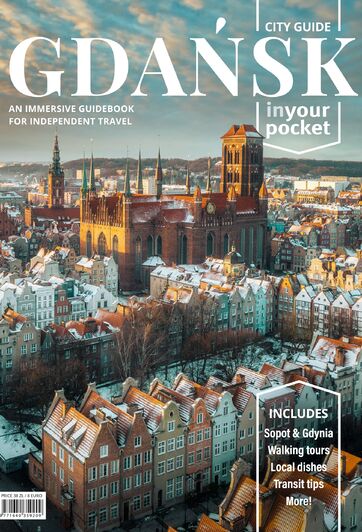
Comments